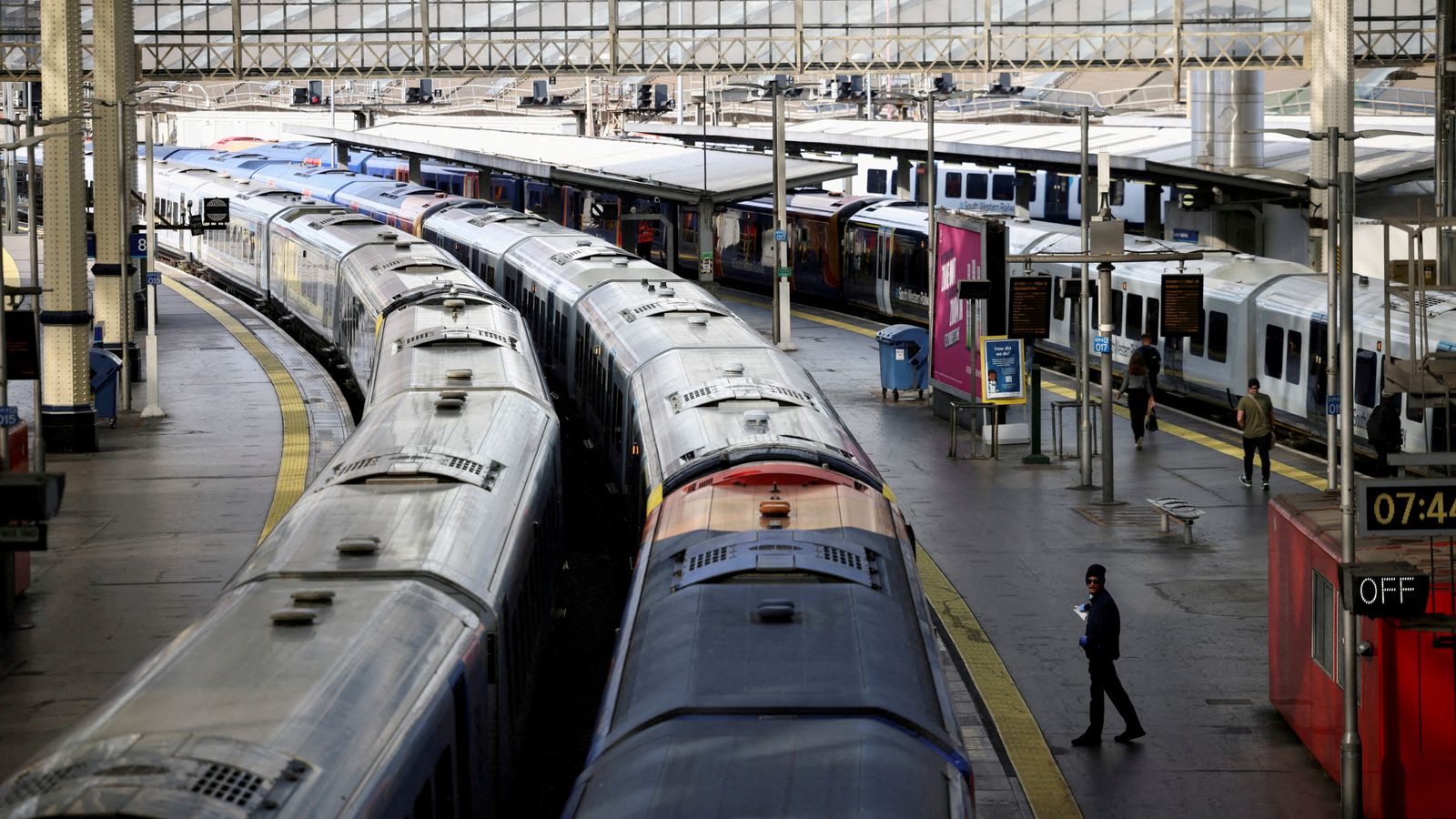Some 40,000 rail workers will walk out on Saturday 8 October for what will be the third day of rail strikes next month.
The Rail, Maritime and Transport union (RMT) said that the strike will affect its members at Network Rail and 15 train operators.
Those operators are Chiltern Railways, Cross Country Trains, Greater Anglia, LNER, East Midlands Railway, c2c, Great Western Railway, Hull Trains Northern Trains, South Eastern, South Western Railway, Transpennine Express, Avanti West Coast, West Midlands Trains and GTR (including the Gatwick Express).
The RMT’s general secretary Mick Lynch said he had been encouraged by a recent meeting between the union and new Transport Secretary Anne-Marie Trevelyan.
But he added: “However, as no new offer has been tabled, our members have no choice but to continue this strike action.
“We will continue to negotiate in good faith, but the employers and government need to understand our industrial campaign will continue for as long as it takes.”
The news comes just days after train drivers at 12 operators vowed to walk out on Saturday 1 October and Wednesday 5 October.
National Insurance rise to be reversed from 6 November, Kwasi Kwarteng announces
Interest rate raised by half a point to 2.25%, the highest level since 2008
Shaun Pinner: Briton released in Russia-Ukraine prisoner swap pictured with his family as all five captives return to UK
Those strikes by Aslef union members could affect both the London Marathon and the Tory party conference.
Operators involved are Avanti West Coast, Chiltern Railways, CrossCountry, Greater Anglia, Great Western Railway, Hull Trains, LNER, London Overground, Northern Trains, Southeastern, TransPennine Express and West Midlands Trains.
Rail is just one sector affected by industrial action – others striking include Royal Mail workers, dock workers, barristers, and BT employees.
Each union is battling to secure wage rises that will help its members combat the worst of the squeeze from the cost of living crisis.
The rate of inflation stands at 9.9% but is expected to return to double figures over the next few months as winter sets in, despite government aid for household and business energy bills.







